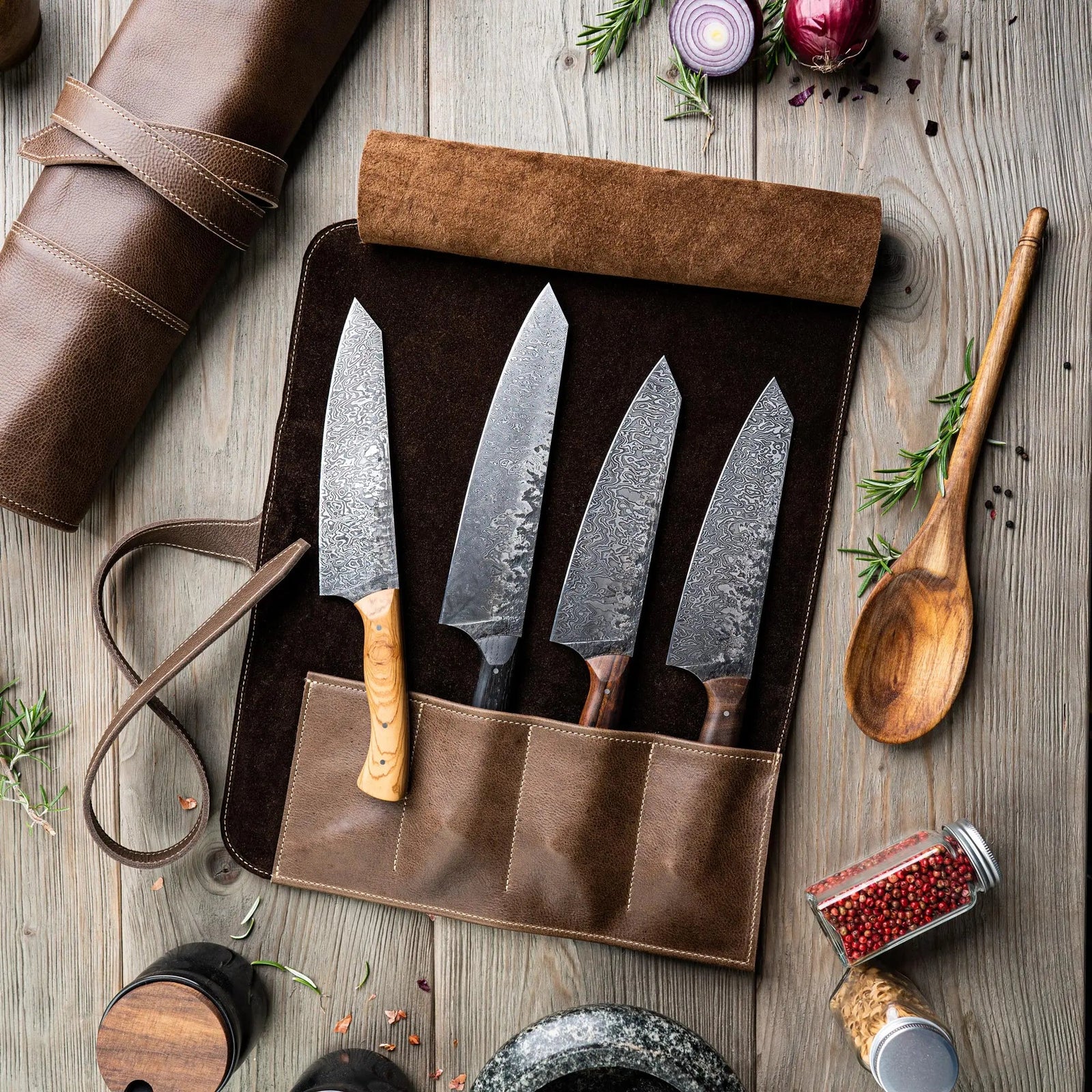Your Cart is Empty
FREE SHIPPING FOR USA

Damascus knives are not only high-performance tools but also works of art that deserve proper care—especially when you're on the move. Whether you're a traveling chef, a collector, or an outdoor enthusiast, transporting a Damascus knife safely is crucial to maintaining its condition and ensuring legal compliance. In this expert guide, we break down how to travel with Damascus knives both domestically and internationally.
Transporting knives, especially high-carbon Damascus steel, presents unique challenges:
Risk of rust or blade damage due to poor storage.
Legal implications if improperly packed.
Potential for personal injury or property damage.
Exposure to moisture or extreme temperatures.
Proper packing, storage, and documentation will ensure your Damascus knives remain in pristine condition while avoiding travel-related issues.
Most countries allow knives to be transported in checked luggage if securely packed. However, knives should never be stored in carry-on bags.
Air Travel (TSA in the U.S.): Knives are prohibited in carry-on bags. You must place them in your checked luggage. Ensure blades are properly sheathed and secured to prevent injury during inspection.
Trains & Buses: Policies vary, but most allow knives in checked or stowed luggage. Always confirm with the carrier beforehand.
Each country has its own customs regulations. Some ban certain types of knives or require declarations.
Research the knife laws of the destination.
Always declare your knife if requested.
Avoid traveling to countries with strict blade laws unless absolutely necessary.
Our premium leather knife roll is the ideal solution for secure and stylish knife transport. Handcrafted to fit multiple Damascus knives, it provides:
Padded slots to prevent blade chipping.
Moisture-resistant leather to protect steel.
Secure buckles to hold everything in place.
A professional, elegant appearance for chefs or collectors.
Pro Tip: Wrap each knife in a soft cloth or blade guard before inserting it into the roll.
Never toss your knife into a bag without a sheath or roll. Loose blades can damage your belongings, cut through fabric, or get rusted if exposed to moisture.
Include moisture-absorbing packets in your knife roll or luggage to protect high-carbon steel from humidity.
Add tags like "Chef Tools" or "Knife Set" so handlers know the bag may require gentle handling or inspection.
If you're a professional (e.g., chef or blade exhibitor), carry documentation such as:
Purchase receipts
Brand certificates
Business cards
Event registration (for shows)
This can prevent customs delays or legal issues.
Oil the blades lightly before packing.
Use leather or synthetic sheaths.
Check airline and customs policies in advance.
Insure high-value knives during air travel.
Bring knives in your carry-on luggage.
Leave knives wrapped in plastic bags (moisture trap).
Use poor-quality knife bags that don’t offer blade protection.
We designed our leather knife roll with traveling artisans, chefs, and collectors in mind. Each roll is handcrafted using premium-grade leather, reinforced stitching, and soft-lined interiors to:
Prevent rust and corrosion
Avoid edge dulling
Offer travel-ready convenience without compromising style
This isn’t just a case—it’s a travel companion for your blade legacy.
Traveling with Damascus knives doesn’t need to be complicated—it just requires preparation and the right gear. With a quality storage solution like Jun Knives' leather knife roll and a firm understanding of transportation regulations, you can ensure your prized blades arrive safely, legally, and ready for use. Respect your blades, protect your investment, and travel like a professional.